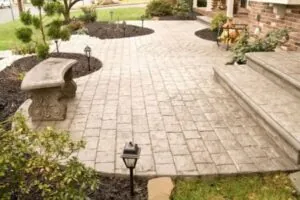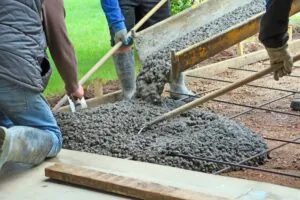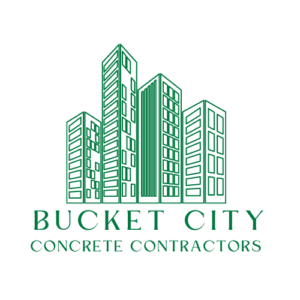Concrete grinding is a crucial process in the construction and maintenance of concrete surfaces. This technique involves using specialized equipment to smooth, level, and refine concrete surfaces, providing numerous benefits for different applications. Let’s explore its key purposes and how it enhances the strength, appearance, and longevity of concrete surfaces.
· Enhancing Concrete Strength
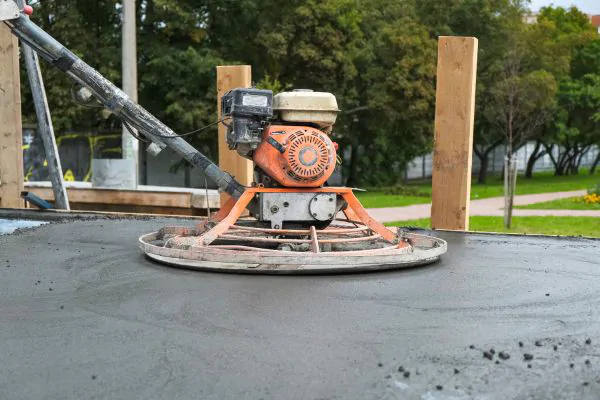
Grinding is essential for concrete surfaces to have improved strength and durability. By removing surface imperfections and irregularities, the concrete’s load-bearing capacity is significantly enhanced. This process also helps to create a more even and stable surface, minimizing the risk of cracks and structural weaknesses.
· Repairing Surface Defects
Surface defects, such as cracks, spalling, or unevenness, can compromise the integrity and aesthetics of concrete. Concrete grinding effectively addresses these issues by smoothing out rough areas, filling cracks, and restoring the surface to its original condition. Such concrete repair processes ensure a level and uniform appearance, making the concrete visually appealing and safe.
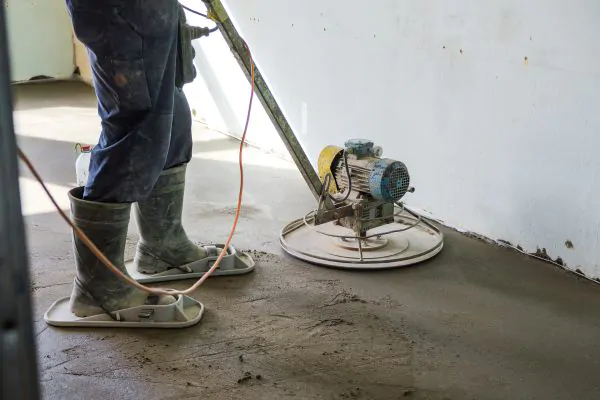
· Polishing and Decorative Finishes
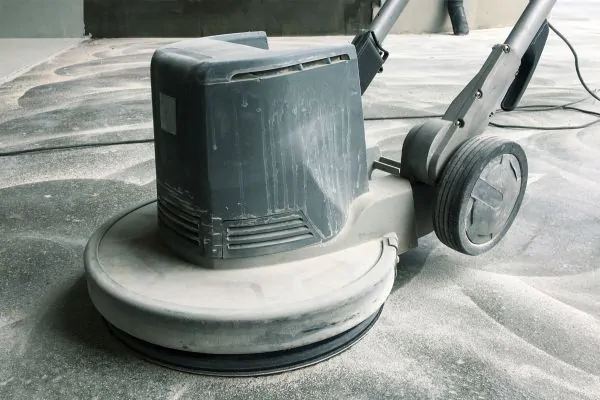
The process of grinding concrete is also an integral part of the process for achieving polished and decorative finishes. After grinding, a polishing compound is applied to the concrete surface, resulting in a smooth and glossy appearance. This technique is popular for commercial spaces, residential floors, and even outdoor areas, adding a touch of elegance and sophistication to the concrete.
· Removing Stains and Coatings
Stubborn stains, sealers, and coatings can mar the beauty of concrete surfaces. Grinding effectively removes these layers, revealing a clean and fresh surface underneath. Whether it’s oil stains, paint spills, or old sealants, grinding eliminates these blemishes, preparing the concrete for a new coat or finish.
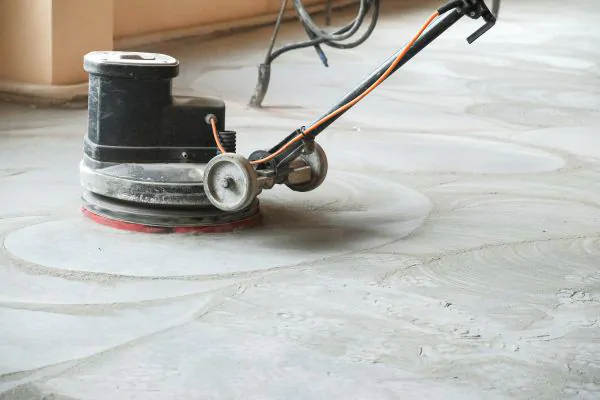
· Surface Profiling
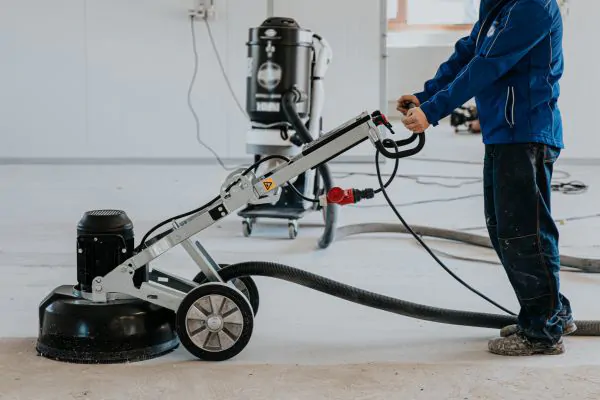
In industrial and commercial settings, achieving the right surface texture is essential for safety and functionality. Concrete grinding allows for precise surface profiling, creating a slip-resistant and suitable texture for various applications. This is particularly important for areas prone to spills or high foot traffic, ensuring a secure and stable surface.
· Surface Restoration and Renewal
Concrete resurfacing through grinding is an effective method to eliminate old and worn-out surfaces. It removes surface imperfections, stains, and blemishes, breathing new life into aged concrete. Whether it’s a weathered patio or a deteriorated warehouse floor, grinding can revitalize the appearance and functionality of the concrete.
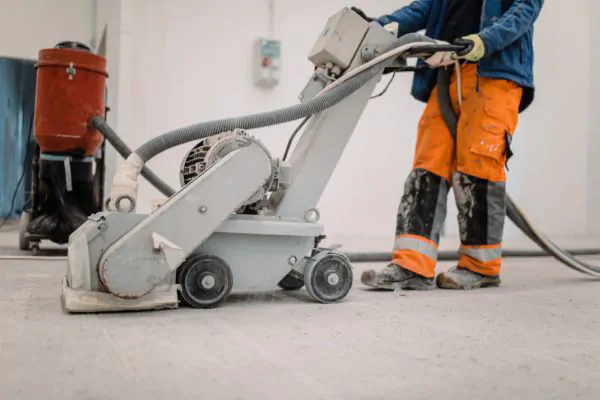
· Correcting Uneven Pouring and Curing
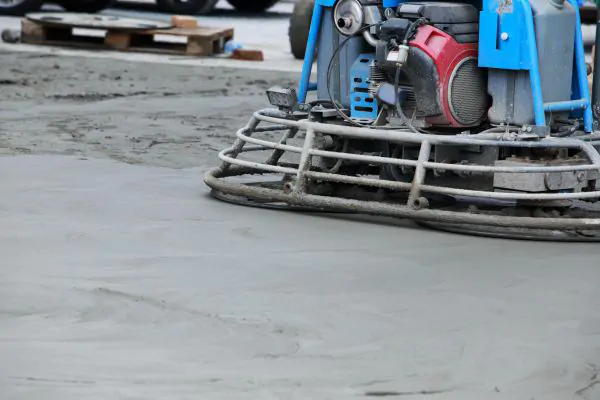
During the initial pouring and curing process, concrete may develop unevenness, resulting in an uneven surface. Grinding can rectify these issues by leveling the concrete and correcting curing irregularities, ensuring a flat and uniform surface for improved aesthetics and functionality.
· Surface Preparation for Surface Coatings
Concrete grinding is a vital step in preparing surfaces for various surface coatings, such as epoxy, paint, or sealers. The process removes contaminants, old coatings, and surface imperfections, providing an ideal substrate for excellent adhesion and longer-lasting coatings.
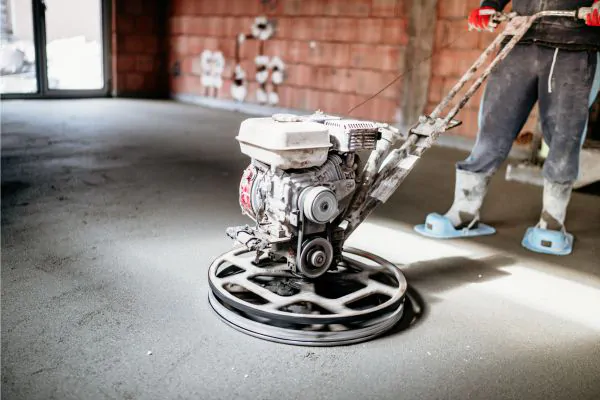
Tips in Grinding Concrete Properly
1. Safety First – Prioritize safety by wearing protective gear, including safety glasses, a dust mask or respirator, earplugs, and sturdy work boots. Concrete grinding produces dust and debris, so taking safety precautions is essential.
2. Select the Right Equipment – Choose the appropriate concrete grinder for the task. For smaller projects or tight spaces, a handheld grinder may be suitable, while larger areas may require a walk-behind grinder or a planetary grinder for more efficient results.
3. Inspect the Surface – Before grinding, thoroughly inspect the concrete surface for cracks, holes, or other damages. Address any repairs needed before starting the grinding process to achieve a smooth and even finish.
4. Proper Grinding Sequence – Start with a coarse diamond grinding wheel to remove surface imperfections and level the concrete. Gradually switch to finer grits for a smoother and more polished finish.
5. Work in Sections – Divide the concrete surface into manageable sections to ensure even grinding and avoid overworking specific areas. Work methodically, overlapping each pass for consistent results.
6. Keep the Grinder Moving – Avoid dwelling in one spot for too long to prevent uneven grinding or gouging of the concrete. Keep the grinder in motion, maintaining a steady and controlled pace.
7. Manage Dust and Debris – Use a dust shroud or vacuum attachment to capture dust and debris generated during grinding. This minimizes airborne particles and promotes a cleaner working environment.
8. Monitor Grinding Pressure – Apply consistent and even pressure on the grinder to avoid excessive wear on the grinding tool and prevent uneven results.
Wrap-Up
The process of grinding, thus, serves various essential purposes, from restoring and renewing surfaces to correcting unevenness and providing a suitable substrate for coatings. Whether it’s for aesthetics, safety, or functionality, this versatile technique plays a crucial role in enhancing concrete surfaces for a wide range of applications.
Concrete Structures Built in Perfection and Precision
Top-notch concrete building solutions can be yours if you choose Bucket City Concrete Contractors. We possess the skills, knowledge, and commitment to assist in all your concrete building needs. Reach us today!
